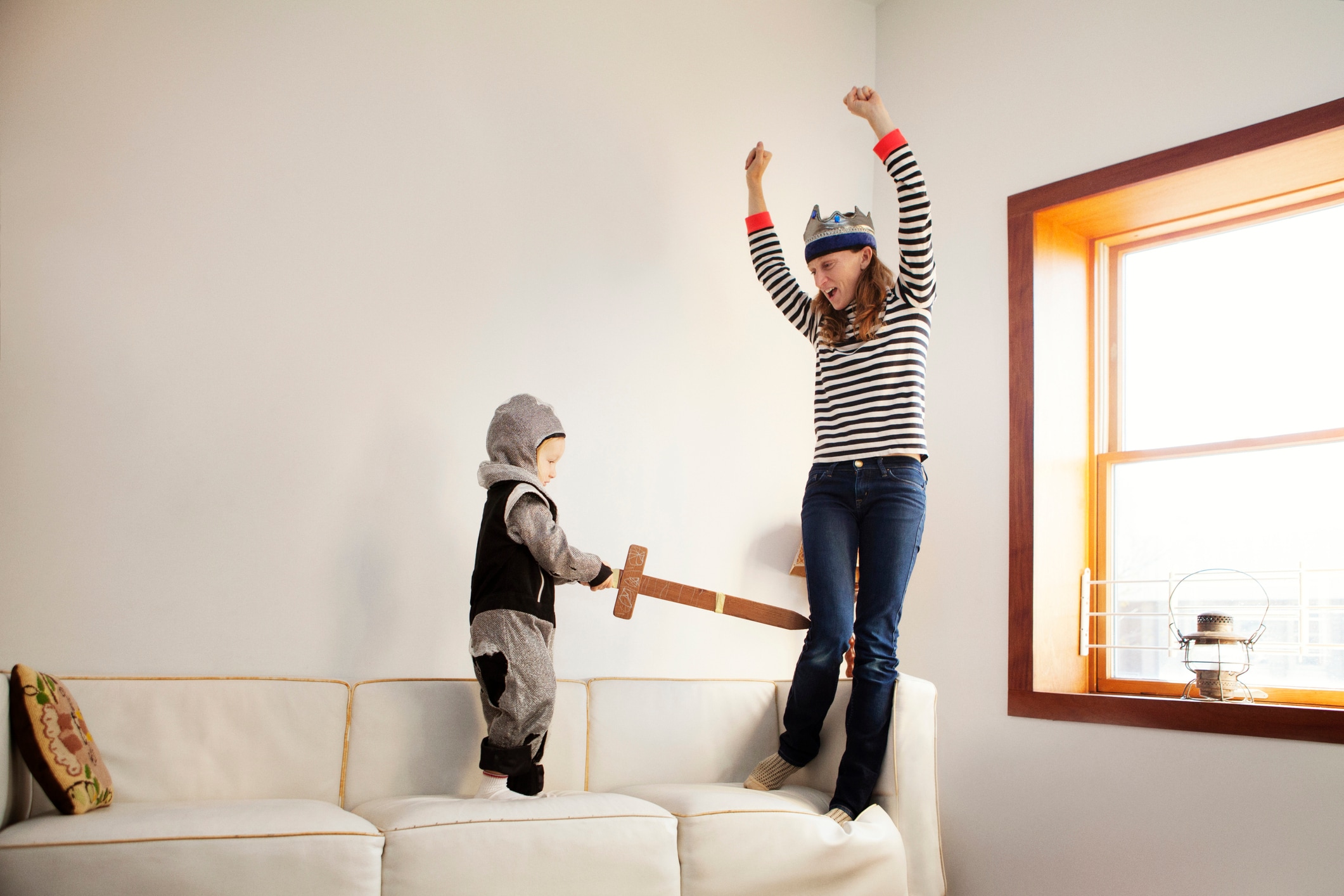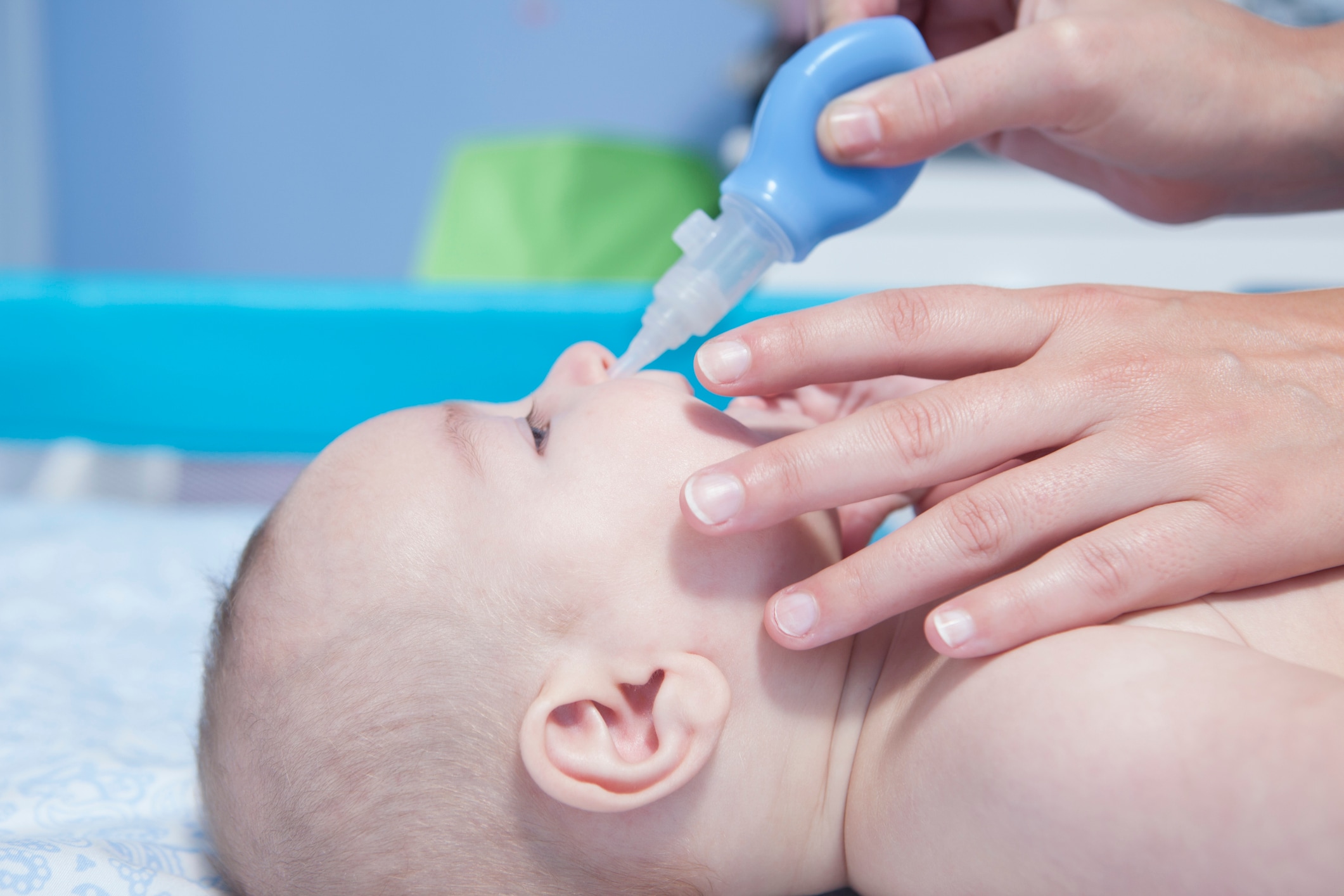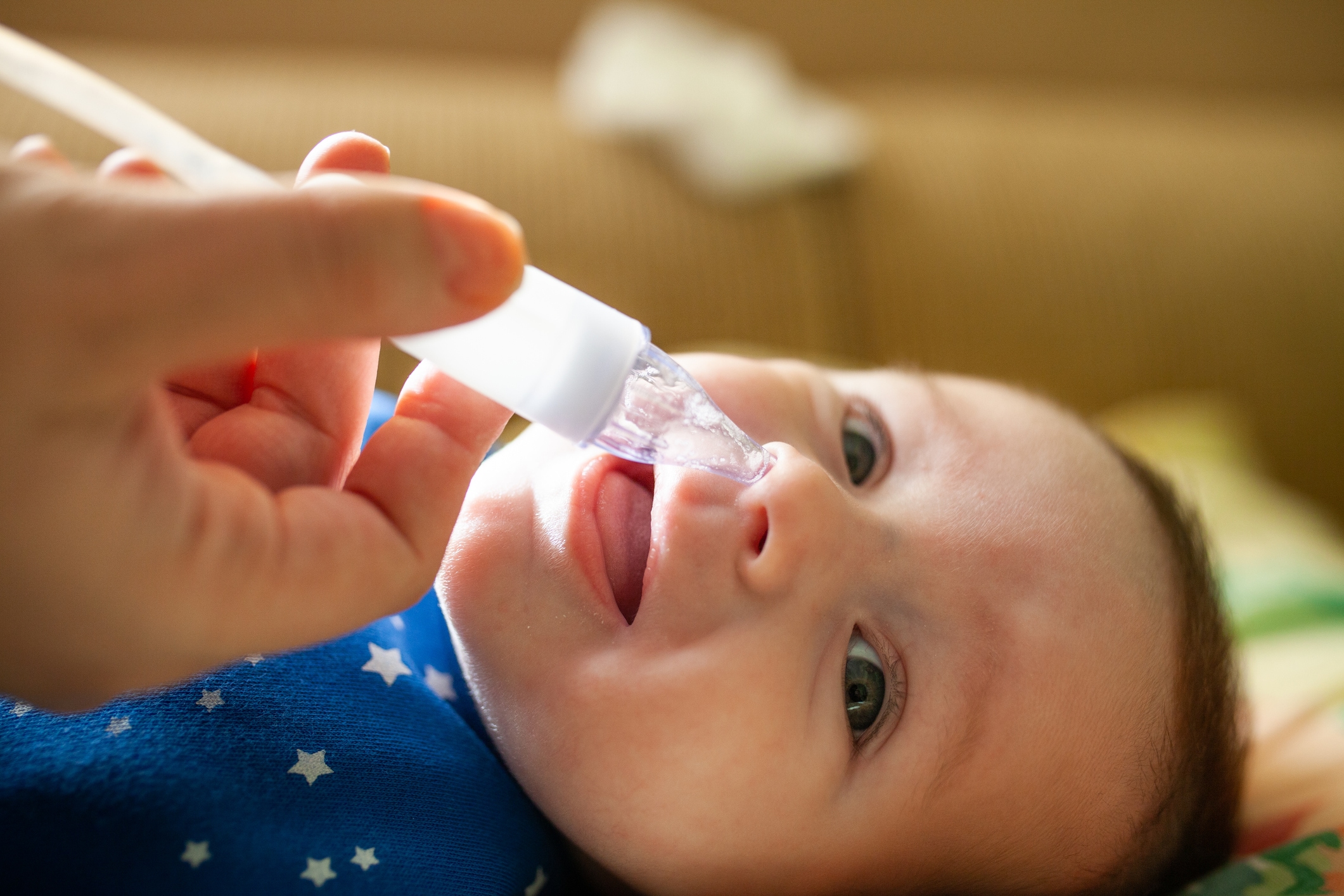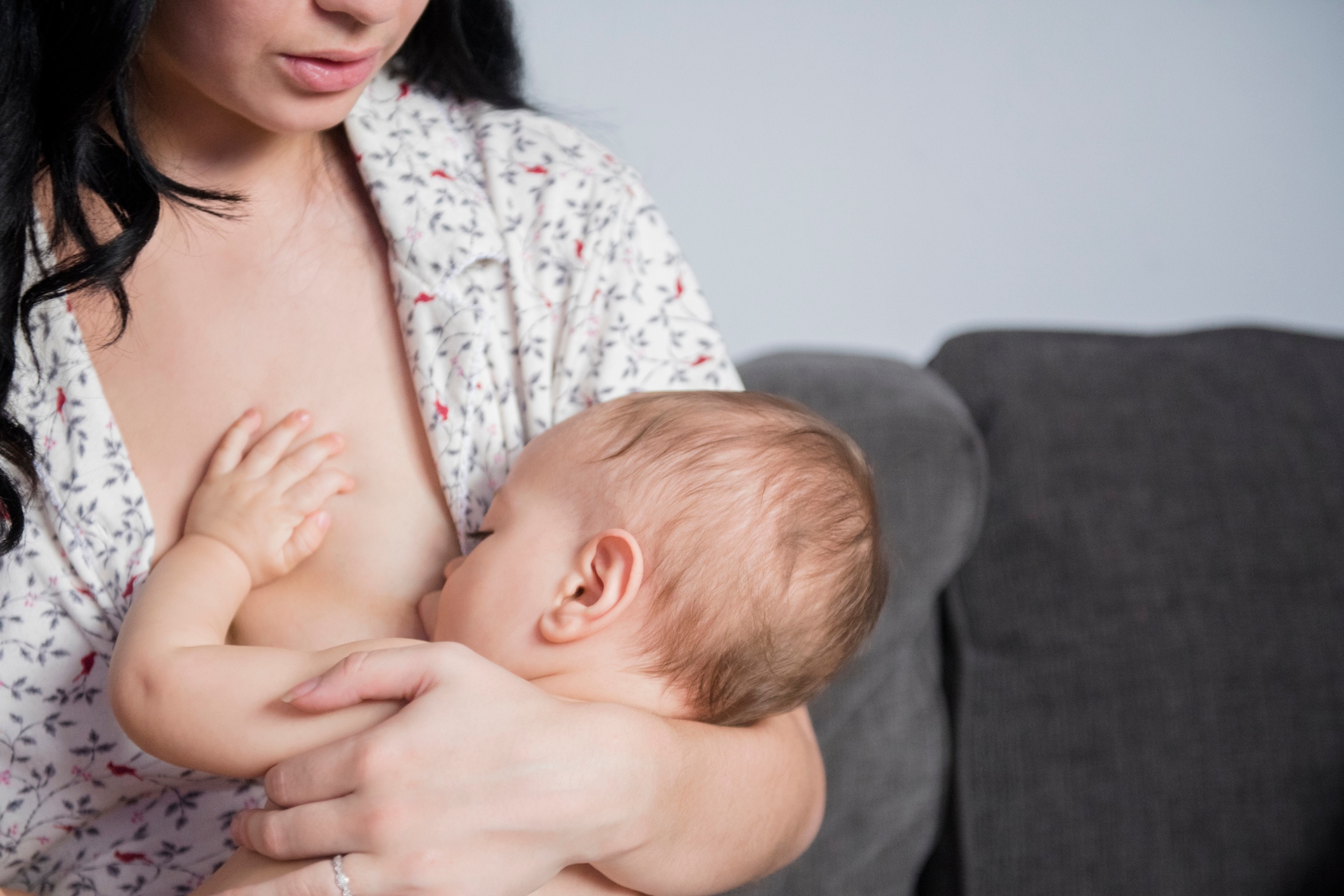When you’re thinking about where to go for dinner at the end of a long week, or the kinds of activities you might do over the weekend – is it the kid-friendly options that spring to mind first?
Even the mere thought of going to a high-end restaurant or bringing the kiddos along to watch the big game at a sports bar might give you anxiety thinking about all the things that could go wrong. Will you need to change them? Will there be anything on the menu they’ll want to eat? Will they start crying inexplicably when you try to explain that their favorite pirate ensemble (complete with menacing eyepatch, of course) isn’t appropriate for where you’re going?
Being a parent already has its own checklist of stressful moments without having to add to the list unnecessarily. So when is it OK to bring a child along, and when should you consider leaving them at home with a sitter instead? To find out, we surveyed 800 people about the most appropriate places to bring kids, where it might be too stressful to have little ones in tow and the general perception of what it means to parent in public. Keep reading to see what we learned.

It may sound obvious, but life does change after you have a baby. The way you interact with people, think about relationships and feel about your social time all shift after a child comes into the picture.
Of course, that doesn’t mean the world changes with you. Even though you may get used to having your kids around 24/7, that doesn’t mean it’s appropriate to bring them everywhere you go. Overwhelmingly, parents and non-parents agreed it was best to leave the kiddos at home when going to work, a sports bar during a big game or an adult friend’s birthday party. But just because you can’t bring your kids doesn’t mean you shouldn’t find ways to make these activities happen.
Places where you’re the least likely to earn a second glance for bringing your kids along? Theme parks, the supermarket, the beach and the pool ranked among places most OK to bring children.
Stressful Situations

Most parents will tell you that raising children is one of the most rewarding experiences. Of course, that doesn’t mean it isn’t without its struggles. From the demands on your time to the financial impact and possible effect on your romantic relationships, being a parent can also be one of the most stressful experiences.
With all the responsibilities parents juggle, it’s worth considering whether children really need to go wherever their parents are. Respondents admitted that the most stressful environment to bring kids was the office (more than 80 percent) – even when sanctioned by the company. This was especially true for mothers more so than fathers.
Like their jobs, upscale restaurants, sports bars and adult parties also ranked as stressful locations for parents to bring kids. In some cases, the anxiety of bringing your kids out to fancy dinner can be as much about the people around you as it is your own enjoyment as a family. We also found that dads had a more difficult time feeling in control of their families when they brought their kids to department stores, the supermarket and theme parks (even though parents typically agreed those were great places to include children).
Stressful Ages

When you’re knee-deep in the terrible twos or other traumatic toddler troubles, hearing other people tell you to enjoy the moment because “it all goes by so fast” might be one of the most aggravating parenting phrases.
More than half of parents agreed it was the ages of 0 to 4 that were ultimately the most stressful, and 29 percent said that age 3 was the pinnacle of their parenting woes. Still, 30 percent of parents suggested it was the teenage years that were the most intense. Having to drive your kids around town before and after work – particularly when they get to an age where you have to juggle your own responsibilities while managing their soccer practice, band camp and any other extracurriculars – can be some of the most draining parenting experiences.
Parenting Preferences

Mommy blogs and educational experts may overwhelm you with advice on the best ways to approach everything from breastfeeding to the first day of kindergarten, but the truth is, there’s no one way to raise a child.
Instead of focusing on the things we may do differently as parents, it’s worth noting the positive perspective most moms and dads share when it comes to raising children. Beyond the way it helps build constructive relationships with other parents, thinking about parenting from a position of dos instead of don’ts can help build stronger bonds of communication between families and shift our focus to living in the moment instead of thinking about what’s ahead. Nearly 69 percent of parents and 63 percent of non-parents said it was perfectly OK to let their children dress up in their halloween costumes, even if they were technically out of season. Even in the heat of the summer months, letting your son or daughter get dolled up in last year’s costumes can be the perfect opportunity to transform a perfectly mundane shopping trip into a special kind of adventure you both get to share. More than half of parents (55 percent) agreed changing a baby in public was also acceptable parenting, through non-parents were slightly less comfortable with the notion (45 percent). In some cases, the issue of the dirty diapers can be a major point of contention between people who do and don’t have children making it a difficult subject to broach in some cases.
Parents and non-parents also tended to agree on the best etiquette not to use around children. Nearly 86 percent of parents and 87 percent of non-parents said it isn’t OK to yell at other adults when children were present. Similarly, both sets of people agreed that letting kids walk around without shoes and using foul language in front of children were typically no-gos.
Appropriate Age for Activities

Most parents want to do everything they can to help their children succeed, and that typically involves recognizing there comes a point in their lives when letting them be independent is the best course of action.
So when is it OK to let your kids explore some of life’s major milestones? By the time kids were 12, most parents thought they were ready for a PG-13 movie, and for their first high-end restaurant experience between ages 12 and 13.
For most parents, the teenage years were a major marker for many of these big moments. After they turned 13, most parents agreed their kids were ready for a cellphone, to use the oven without supervision, to babysit siblings and to take a flight on their own. By 14, they were usually ready to go to the mall without supervision, and by 15, they could watch an R-rated movie. By 16, most parents agreed it was OK for their kids to go to a concert without a chaperone.
Airplane Annoyances?

Traveling with kids is an adventure in its own right. From making sure you have everything they’ll need to make it through the flight to preparing for worst-case scenarios, booking a flight with children in mind can be a daunting experience. Without knowing how your kids will act or whether there may be tears involved, you might be worried what the people around you will think. But those fears may be unfounded.
When asked about the worst seating arrangements on a flight, over 45 percent of people said they’d least want to sit next to someone with bad body odor, followed by nearly 19 percent who wouldn’t want to sit next to a chatterbox. Less than 15 percent identified a young child as their worst possible row partner, and only 1 in 10 have been bothered enough by a young child to publicly ask to switch seats to move away from a baby. Still a whopping 69 percent of people were willing to pay extra if it meant not sitting next to a child – averaging $52.50 in additional costs.
Leaving the Kids at Home
As a parent, even when your kids drive you crazy, they still make you happy. And no matter how old they are, you’ve probably got enough on your mind without having to worry about whether or not they want to wear last year’s princess costume to dinner or if you’ll need to consider implementing a Time Out or raising your voice in public. While different ages may present different stressors for parents, sometimes it’s just easier leaving the kids at home when they don’t need to be with you.
At Care.com you can search for experienced caregivers. Whether you need a babysitter to enjoy a relaxing night off or an ongoing nanny or tutor to help fill in the gaps between work and school schedules, Care.com is here for you for those times when you can’t do it all. Don’t stress about finding a caregiver for your family – visit Care.com for the support you need.”
Methodology
To find out the information above, we surveyed 800 people about their experiences with and perceptions of children. Of the 800 total surveyed, 53 percent were parents and 47 percent were not. Except for the information about the most stressful ages of children, we considered all parents’ responses irrespective of the age of their children. For that graphic and associated information, we considered only responses for parents with children over 18 who we felt could best comment on the most stressful age for children. Because the information is self-reported, it’s only accurate to the best of people’s perceptions on the day they were surveyed, and extemporaneous surveying was not necessarily done – we just asked people about what they remembered.
Fair Use Statement
Like a great tip to get your child to fall asleep faster, the information above is most useful when shared. We encourage you to share with any friends, families or for any noncommercial purpose – we only ask that you cite Care.com and link back to this page when you do.





